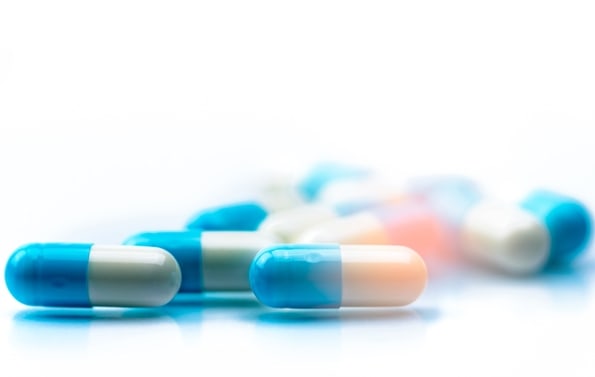Introduction. Medication Treatment Strategies in Bipolar Disorder

Untreated patients with bipolar disorder have a high risk of relapse, making long-term relapse prevention with medication necessary. To achieve maximum therapy success, an individualized medication approach is needed, which must be based on an accurate diagnosis. Bipolar disorder requires a different treatment approach than unipolar depression, so accurate diagnosis is crucial.
In the course of bipolar disorder depressive symptoms cause more sever suffering, last longer than manic episodes which makes the visit by a psychiatrist more likely. In contrary patients in hypomania or mania feel euphoric, frequently they lack the insight and are not motivated to visit physicians. Under such circumstance bipolar disorder can be “masked” and symptoms of mania and especially of hypomania can be easily overlooked. Medication Strategy in Bipolar Disorder should always consider the possibility of the presence of BDr when treating patients with depression. It’s mandatory to ask patients with depressive symptoms about prior manic episodes.
Bipolar I versus Bipolar II
While Bipolar I Disorder is easy recognizable because of unreasonable actions and irrational behaviour leading to more or less severe social consequences, bipolar II can remain undetected.
In BP II the symptoms are milder. The patients can even enjoy such phases due to elevated mood and energy which make them more productive. Typical for hypomania in BP II is a shortened sleep cycle with no daytime fatigue that patients may not mention unless specifically asked.
The main therapeutic obstacle in treatment for Bipolar Disorder is convincing the patient to comply with the treatment, especially with the intake of medication. Proper medication strategies in bipolar disorder are the prerequisite for the therapeutic success. A “tailored” treatment requires precise diagnostics, differentiated medication strategies, close psychiatric monitoring and an excellent therapeutic alliance between patient, his family and therapist.
CANMAT guidelines for medication strategies in Bipolar Disorder
Since 2018, new studies, meta-analyses, and revisions of treatment recommendations from the Canadian Network for Mood and Anxiety Treatments (CANMAT) and the International Society for Bipolar Disorders (ISBD) have been published for the management of patients with Bipolar Disorder. These recommendations are based on scientific studies and international guidelines.
There is increasing evidence that bipolar disorder may be a neuro-progressive disease. Each relapse can lead to neurotrophic and inflammation-related changes in the grey and white matter of the brain. Such changes will cause neurocognitive deficits affecting the memory, concentration and decreasing the emotional modulation.
Epidemiological data shows that bipolar disorders typically persist lifelong, and that the frequency of episodes may even increase over time. Therefore, almost all patients with Bipolar Disorder require long term relapse prevention.
CANMAT key recommendations
Bipolar disorder is a severe, recurring psychiatric illness that, when left untreated, can lead to significant social disadvantages, disability, and neurotrophic brain changes. Treatment goals include symptom remission during acute episodes, prevention of relapses, and neuroprotection.
Despite the well-established effectiveness of pharmacological therapies, additional psychosocial treatment is an important therapy component. The psychosocial approaches, include psychotherapy, individual and group psychoeducation, as well as involvement of family members and, if necessary, supported employment.
Cognitive behavioral therapy has the strongest evidence of effectiveness among accompanying psychotherapeutic interventions.
Medication treatment recommendations
Medication treatment for bipolar disorder suppresses symptoms, prevents symptom recurrence, and has neuroprotective effect.
Treatment with medication can be categorized into acute therapy, continuation therapy, and relapse prevention.
Acute mania
Treatment for acute mania suggest monotherapy with lithium, valproate, or various atypical antipsychotics as the first-line options. Lithium continues to be the “gold standard” for treating bipolar disorders. It is the first-line option for acute mania and particularly for long-term treatment of bipolar disorders.
Combinations of a mood stabilizing agent (lithium, valproate) with an atypical antipsychotic are also recommended due to their particularly pronounced efficacy.
As a general rule, medications that were effective during the acute phase are also suitable for maintenance therapy.
Bipolar depression
In bipolar depression, the best evidence supports monotherapy with quetiapine, followed by lithium and lurasidone. Combining a mood stabilizer or antimanic agent (e.g., lithium or atypical antipsychotics) with lamotrigine or an antidepressant, especially an SSRI or bupropion, is also recommended.
Relapse prevention
As the first-line options for relapse prevention are recommended: lithium, quetiapine, lamotrigine (primarily for preventing depressive episodes), aripiprazole (for preventing manic episodes), olanzapine, valproate, asenapine. Also, the combinations of lithium and valproate, and lithium or valproate with quetiapine can be used. Aripiprazole and risperidone are recommended in combination with a mood stabilizing agent.
In relapse prevention, combinations of lithium or valproate with aripiprazole, risperidone, and lamotrigine are recommended. Lithium and valproate can also be combined with risperidone and aripiprazole as depot injections.
Treatment for rapid cycling
A course of bipolar disorder with four or more episodes within one year is called “rapid cycling.” Treatment for rapid cycling is challenging. Hypothyroidism, use of antidepressants or substance abuse are often associated with this course pattern. Patients with rapid cycling seem to respond less well to antidepressants than other bipolar patients. The risk of depressive relapses is tripled in rapid cycling. The CANMAT guidelines recommend against the use of antidepressants in rapid cycling. Lithium and lamotrigine have shown antidepressant effects in controlled studies. For the long-term treatment of rapid cycling, the CANMAT guidelines recommend combination therapies with valproate and lithium.
Atypical antipsychotics
Atypical antipsychotics are also considered first-line options for mania, bipolar depression, and long-term treatment (especially quetiapine). Asenapine and paliperidone are newly recommended as monotherapy and in combination for the treatment of acute mania.
Antiepileptic medication
Anticonvulsants have differential efficacy for the manic and depressive poles. Valproate has an acute antimanic effect, while lamotrigine has a preventive effect against depression. Lamotrigine has been newly recommended for the acute treatment of bipolar depression.
Preventing adverse effects
To prevent adverse effects, careful assessment of risk factors before starting therapy is necessary. Treatment with medication for Bipolar Disorder require regular laboratory monitoring and ECG controls for safe acute and long-term medication management.
Valproate should be avoided in women of childbearing age due to its potential teratogenicity.
Treatment strategies in BD. Summary.
As the name suggests bipolar disorders has two poles. The poles are opposite in many ways and require separate treatment strategies. Medication therapy is the key method during mania. For treatment of bipolar depression combination of psychotherapy and medication should be used from the beginning.
A long-term perspective is crucial for treating bipolar disorder due to its chronic character. Social and psychological factors, such as gene-environment interactions and epigenetics, play an important role in the onset and course of the disorder. For these reasons, a bio-psycho-social treatment approach is recommended, incorporating an integrated collaborative care model. This model should involve the cooperation of different experts and diverse treatment programs. The programs includude medication therapy, monitoring metabolic parameters, psychotherapy, physical exercises and lifestyle coaching.
Managing the acute phase
The treatment managing acute symptoms (acute therapy) should be continued that long as expected in the natural course of the disease. Premature termination of the therapy before the complete resolution of the illness phase, can lead to the recurrence of symptoms (relapse). Medication treatment should be continued until the hypothetical point at which the illness phase would have resolved even without treatment. We refer to this as “continuation treatment”.
In the treatment of mania, it is important to assess the risk of self-harm and harm to others. As soon as the hypomanic or manic symptoms are detected the use of antidepressants should be stopped.
In recent years, the effectiveness of various atypical antipsychotics in the treatment of acute mania has been demonstrated in controlled studies. The dosage recommendations for atypical antipsychotics in the treatment of mania are similar to those used in treatment for schizophrenia.
Treating bipolar depression
The role of antidepressants in the treatment of bipolar depression is still a subject of controversy. The risk of antidepressants triggering hypomanic or manic episodes is likely lower than initially believed. Several studies have shown that antidepressants are safe and effective in the acute treatment of depression in bipolar disorders. However, their average efficacy is significantly lower than in unipolar depression.
For the treatment of depression in the context of bipolar disorders (bipolar depression), various international guidelines recommend the use of the atypical antipsychotic quetiapine at a dosage of 300 mg. Higher dosages, such as 600 mg, did not show improved efficacy.
The CANMAT/ISBD Update 2018 considers the combination of mood stabilizing medications with SSRIs or bupropion as a possible second-line treatment strategy.
Lithium used in the currently typical dosage with lithium plasma level between 0.6 and 0.8 mmol/l has both mood-stabilizing and antidepressant effects. Regarding suicidality, lithium appears to have stronger preventive effects compared to other substances.
Treatment of mixed episodes in BD
Mixed episodes or episodes with mixed features (DSM-5), which include simultaneous manic and depressive symptoms, are particularly challenging to treat. They are considered predictors of increased comorbidity, higher number of illness episodes, increased treatment contacts, disability, and elevated suicide risk. Regarding the prevention of mixed episodes, the best evidence exists for olanzapine, quetiapine, valproate, lithium, and asenapine. The CANMAT guidelines advise against the use of antidepressants in mixed episodes.
In conclusion, a precise diagnosis, individualized medication strategy, psychotherapy, including individual and group psychoeducation, as well as involvement of family members and patient cooperation are essential for successful treatment for bipolar disorder.

DR. GREGOR KOWAL
Senior Consultant in Psychiatry,
Psychotherapy And Family Medicine
(German Board)
Call +971 4 457 4240
